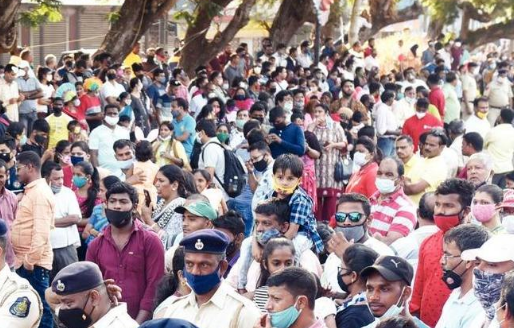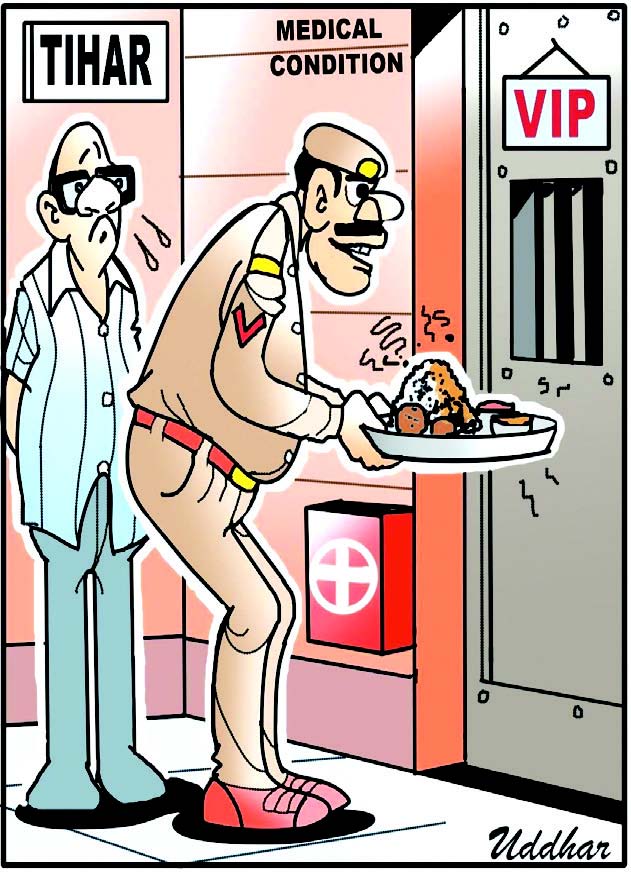
ALEXANDRE MONIZ BARBOSA
Masked revellers were aplenty as King Momo trundled down the streets of Panjim on Saturday evening and read out his decree declaring three-days of fun and frolic. Cheering him on were a few locals and groups of tourists, and for a change on Carnival day, a significant number of them were masked. This year perhaps saw the highest number of masks on people at the Carnival, and thousands were distributed free. But the masks were not carnivalesque in nature. They were meant to cover the mouth and the nose to keep the Coronavirus away. Many had them on in that manner, others had pulled it down to the chin. Carnival descended upon Goa in the midst of a pandemic that a few months ago would not have been thought possible. Had the celebrations been cancelled, it would not be the first time this was happening.
Over the long decades since the 1960s, Carnival in Goa has had its fair share of controversies. Senior citizens will recall how traditions have changed over the years and others claim the role they played in taking carnival from a people’s celebration to a festival on the national tourism calendar. For certain, the float parades that today are an integral part of the carnival festivities date back to just around five decades when Timoteo Fernandes rode a bullock cart into Panjim on a Fat Saturday that later spawned into the floats. The parades took a pause during the 1980s due to allegations of drug abuse, controversies that engulfed the celebrations during those years. The parades were resurrected via a junk car rally by local citizens and returned under government control and Goa Tourism sponsorship. Carnival was taken national and international as a tourism magnet that even the pandemic could not repel this year.
That the government refrained from cancelling the float parades, despite the risk of COVID-19 infections indicates just how much this festival has become part of the State’s entertainment scene if not its culture.
Such is the fame of carnival across the country that a private low-cost airline tweeted the previous week that it would be serving Goan meals on some of its flights to Goa during the Carnival period. The airline was offering chicken xacuti sandwich on multigrain bread and paneer xacuti sandwich on curry bread. That of course would not be the reason enough for travellers, but certainly the draw of a float parade when in other cities entertainment is restricted would be reason enough to get onto a plane or drive down to Goa. This is one festival that, after the New Year Eve perhaps, draws the largest number of tourists to the State, and to be honest, everything about the Carnival is tuned to attract the travellers to the State. Would the government, in the midst of the pandemic, have otherwise presided over a float parade had it not been to pander to the tourism trade?
While Goa taps its feet to the rhythm of the Carnival beats these three days, thousands of miles away, the city from which Goa aped the float parade, carnival celebrations stand cancelled. Last month the Mayor of Rio de Janeiro announced that the Rio Carnival would not take place this year due to the pandemic that has battered Brazil. Earlier the carnival celebrations in Rio had had been postponed to July, but as the pandemic showed few signs of abating, Rio de Janeiro decided to not hold the internationally-famed carnival this year and make it a grander affair in 2022. Most cities across the world have cancelled the carnival float parades, though many have permitted low-key celebrations. In effect, Goa is one of the few places where organised carnival celebrations – float parades in particular – are taking place this year. Countries in Europe that are currently swamped by a second wave cannot even consider having any sort of carnival celebrations, while other countries are not risking the parades that will draw crowds and where social distancing will be difficult to maintain. Standard operating procedures have been put in place for the carnival celebrations. Enforcing them will be the difficult part.
If carnival celebrations could not be cancelled, despite some citizens so demanding, it is primarily because the tourism industry depends on this festival and in a season where the footfalls have been low, a float parade could just give the industry some financial impetus to look forward to the next season. Tourism has picked up in the past weeks and carnival could give it a further leg up.
This, however, would have been the opportune moment to bring the traditional elements of carnival to the forefront, especially the khell tiatrs that are a dying form of art today. The khell is a carnival tradition that is essentially Goan. It is a satirical skit that was performed in the villages that went around the village during carnival performing in the front yard of the various landlords’ houses or of those who were willing to pay for the performance. The entire neighbourhood would watch the performance that depicted village life or brought life folktales. That tradition is dying. There are very few groups that still perform the khell at carnival time, and these are mainly restricted to Salcete. Two obstacles that the khell troupes face are finance and the lack of performers. Significantly, these could also be interrelated as if there is the promise of remuneration, there could be more people interested in performing. In the 60th year of Goa’s Liberation, when the State has been promised a grant of Rs 300 crore, a part of it could be set aside to keep alive this dying tradition that would in turn also boost the language.
Goa decided that it would celebrate carnival in the usual manner despite the pandemic. When it spends in lakhs for this festival, it should also give a thought to the traditional khell artistes and ensure that a certain sum is also spent on them. Time also to play up other Goan traditions for tourists and the khell is one of the traditions that is deeply rooted in the carnival. Goa should start planning for its next Carnival now and bring in innovation that makes the festival more appealing.
